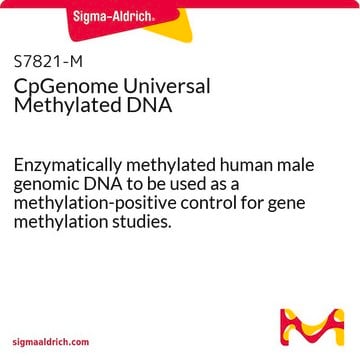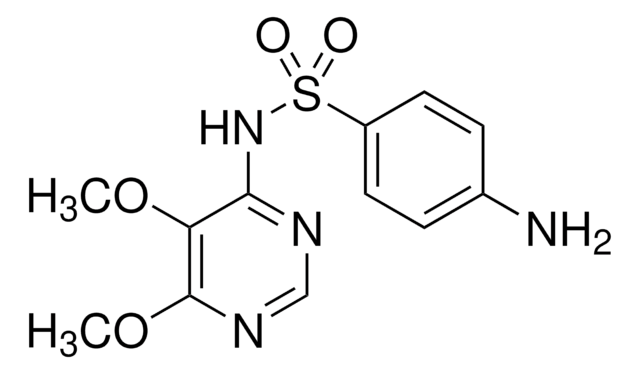S7821
Sulfadoxin
≥95% (TLC)
Synonym(s):
4-Amino-N-(5,6-dimethoxy-4-pyrimidinyl)benzenesulfonamide, Sulfadoxine
About This Item
Recommended Products
assay
≥95% (TLC)
form
powder
color
white
solubility
ethanol: NH4OH (9:1): soluble 20 mg/mL
antibiotic activity spectrum
parasites
mode of action
enzyme | inhibits
SMILES string
COc1ncnc(NS(=O)(=O)c2ccc(N)cc2)c1OC
InChI
1S/C12H14N4O4S/c1-19-10-11(14-7-15-12(10)20-2)16-21(17,18)9-5-3-8(13)4-6-9/h3-7H,13H2,1-2H3,(H,14,15,16)
InChI key
PJSFRIWCGOHTNF-UHFFFAOYSA-N
Looking for similar products? Visit Product Comparison Guide
General description
Application
Biochem/physiol Actions
Other Notes
related product
Certificates of Analysis (COA)
Search for Certificates of Analysis (COA) by entering the products Lot/Batch Number. Lot and Batch Numbers can be found on a product’s label following the words ‘Lot’ or ‘Batch’.
Already Own This Product?
Find documentation for the products that you have recently purchased in the Document Library.
Customers Also Viewed
Our team of scientists has experience in all areas of research including Life Science, Material Science, Chemical Synthesis, Chromatography, Analytical and many others.
Contact Technical Service












